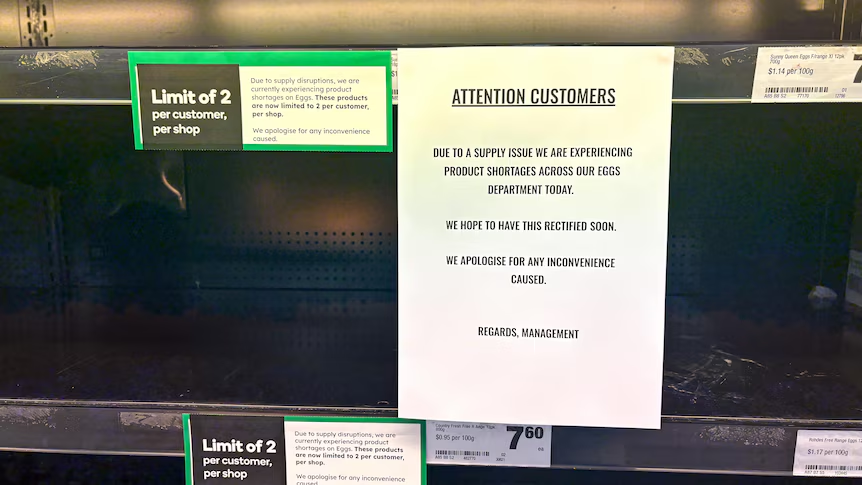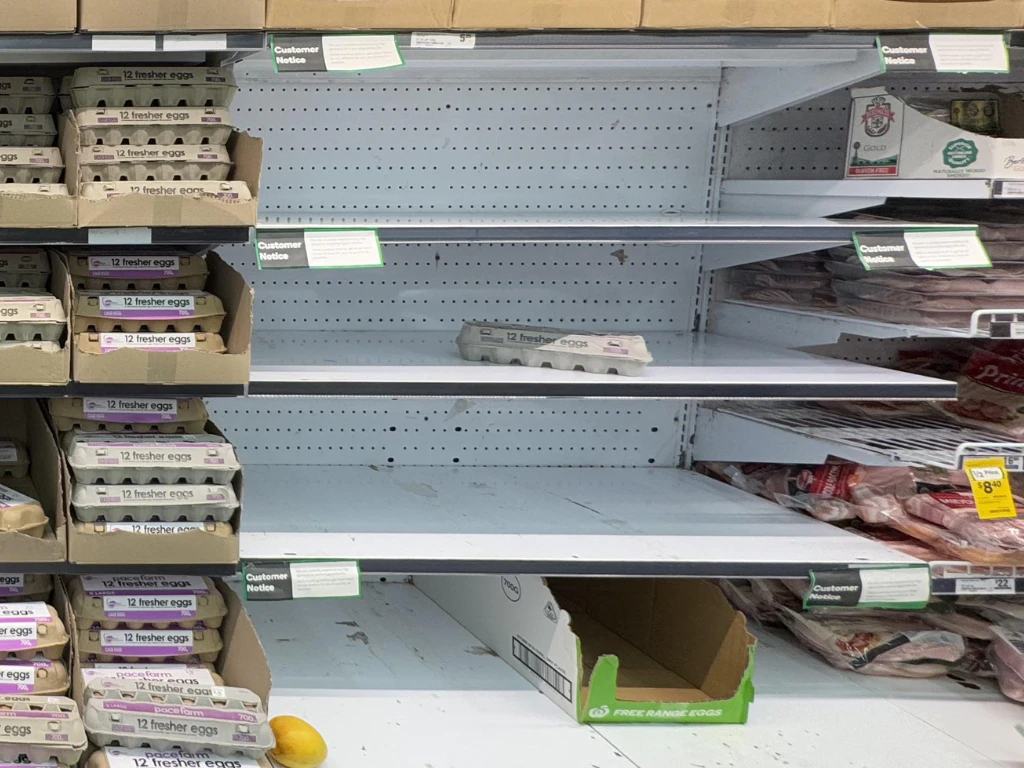If you’ve been to your local supermarket lately, you might have noticed that the egg shelves are looking a bit bare.
And you’re not alone – many Aussie consumers are taking to social media to share photos of empty egg shelves. But what’s behind this shortage, and how long will it last?
The Bird Flu Factor
Last year’s bird flu outbreak is a major contributor to the current egg shortage. The outbreak, which affected several poultry farms in Victoria, New South Wales, and the ACT, resulted in the culling of millions of birds.
This has had a significant impact on egg production, with farmers now working to rebuild their laying stock.

The Perfect Storm: High Demand and Changing Regulations
But the bird flu outbreak is just one part of the story. The festive season has also seen a surge in demand for eggs, which has put additional pressure on suppliers.
At the same time, there’s been a shift away from caged eggs, with many consumers opting for more humane and sustainable options.
This has required producers to adjust their practices, which has also contributed to the shortage.
How Long Will the Shortage Last?
According to egg farmer Danyel Cucinotta, the shortage could last for up to two years. Cucinotta appeared on Sunrise recently, warning that the effects of the bird flu outbreak will be felt for some time to come.
“In 2024, we had avian influenza in a number of our east coast states, we saw about two to three million birds culled, and now we’re seeing the effects of that,” she said.
The Impact on Consumers
So what does this mean for consumers? With demand on the rise and supply limited, it’s likely that we’ll see higher prices and potentially even rationing of eggs.
Cucinotta notes that many people are turning to eggs as a affordable protein source, which is exacerbating the shortage.
“Because of the cost-of-living crisis, more people are eating eggs,” she said. “I’m not sure how the supermarkets will keep up unless they start farming, but farmers are working really hard right now to catch up.”
What’s Being Done to Address the Shortage?
Egg farmers are working hard to rebuild their flocks and increase production, but it’s a slow process.
As Cucinotta notes, “birds don’t get produced overnight” and it can take up to two years to get flock sizes back up and running.
In the meantime, consumers may need to get used to paying a bit more for their eggs or looking for alternative sources.

